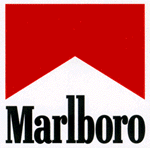Crime & Punishment Journal
__________________________________________________________________________________________________________
Nevis & St Kitts.
This magazine is copyright. Apart from any fair dealing for the purposes of private study, research, criticism, or review, as permitted under the Copyright Act, no part may be reproduced by any process without written permission. Enquiries should be made to the publisher.
War Crimes
ISBN 0 7022 14167 (cloth)
ISBN 0 7022 1649 6 (paper)
R.S. Vol. 1 Cheques Act 1960 329
(2) Where a banker in good faith and in the ordinary course of business pays any such instrument as the following, namely-
(a) A document issued by a customer of his which, though not a bill of exchange, is intended to enable a person to obtain payment from him of the sum mentioned in the document, or
(b) A draft payable on demand drawn by him upon himself whether payable at the head office or some other office of his bank-
he shall not, in doing so, incur any liability by reason only of the absence of, or irregularity in indorsement and the instrument shall be deemed to have been paid in due course.
REFER: (as from 1/1/80) s. 9(2) of 1979 No. 3. The amendments carried out by this section to continue notwithstanding its repeal.

http://www.comcom.govt.nz/
| The
Commerce Commission enforces legislation that promotes competition in
New Zealand markets and prohibits misleading and deceptive conduct by
traders. The Commission also enforces a number of pieces of legislation
specific to the telecommunications, dairy and electricity industries. In ensuring compliance with the legislation it enforces, the Commission undertakes investigation and where appropriate takes court action; considers applications for authorisation in relation to anti-competitive behaviour and mergers; and makes regulatory decisions relating to access to telecommunications networks and assessing compliance with performance thresholds by electricity lines businesses. Click here for information on what we don't do and who else could help. |
|
Examples
Five producers of pre-mixed concrete in Australia met to agree on a pricing policy to stop a price war which had forced the price of pre-mix concrete to below production cost. The producers were convicted and fined a total of $250,000 after admitting they had entered into an arrangement to fix prices.
A sales representative of a petrol company sought to convince a garage selling a competing petrol brand in a small New Zealand town to raise its prices. The sales representative was fined $8,000 and his company, $40,000, after pleading guilty to price fixing.
Exceptions
The commerce Act allows price fixing in some cases. These apply only where the price fixing between competitors does not substantially lessen competition in the market as a whole. Price-fixing between competitors may be allowed as follows.
Joint ventures (section 31)
Two or more people or businesses jointly buying or selling goods and services may, in some situations, fix prices for the goods and services that the joint venture deals in.
Example
Two competing manufacturers form a joint venture to make a new product and, while the joint venture remains in place, agree to sell the product at the same price...
.

The brand is named after Great Marlborough Street, the location of its original London Factory. Richmond, Virginia is now the location of the largest Marlboro cigarette manufacturing plant.
Philip Morris, a London-based cigarette manufacturer, created a New York subsidiary in 1902 to sell several of its cigarette brands, including Marlboro. By 1924 they were advertising Marlboro as a woman's cigarette based on the slogan "Mild As May".
The brand was sold in this capacity until World War II when the brand faltered and was temporarily removed from the market. At the end of the war, three brands emerged that would establish a firm hold on the cigarette market: Camel, Lucky Strike, and Chesterfield. These brands were supplied to US soldiers during the war, creating an instant market upon their return.